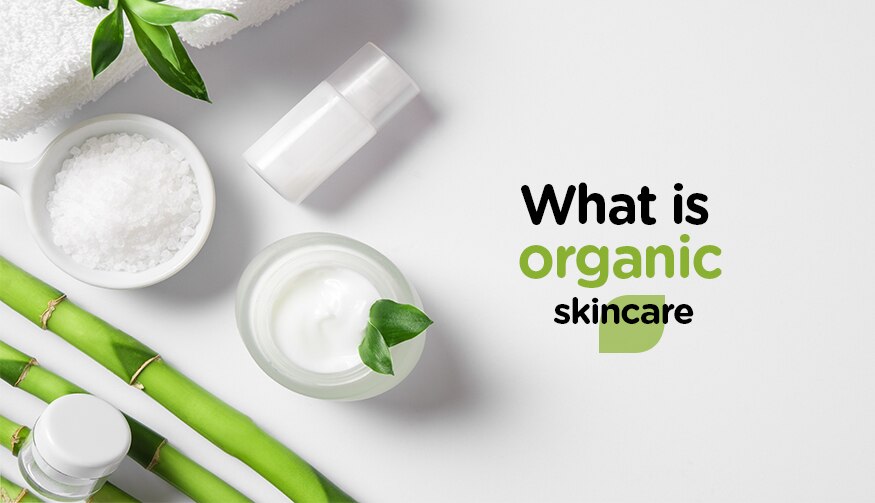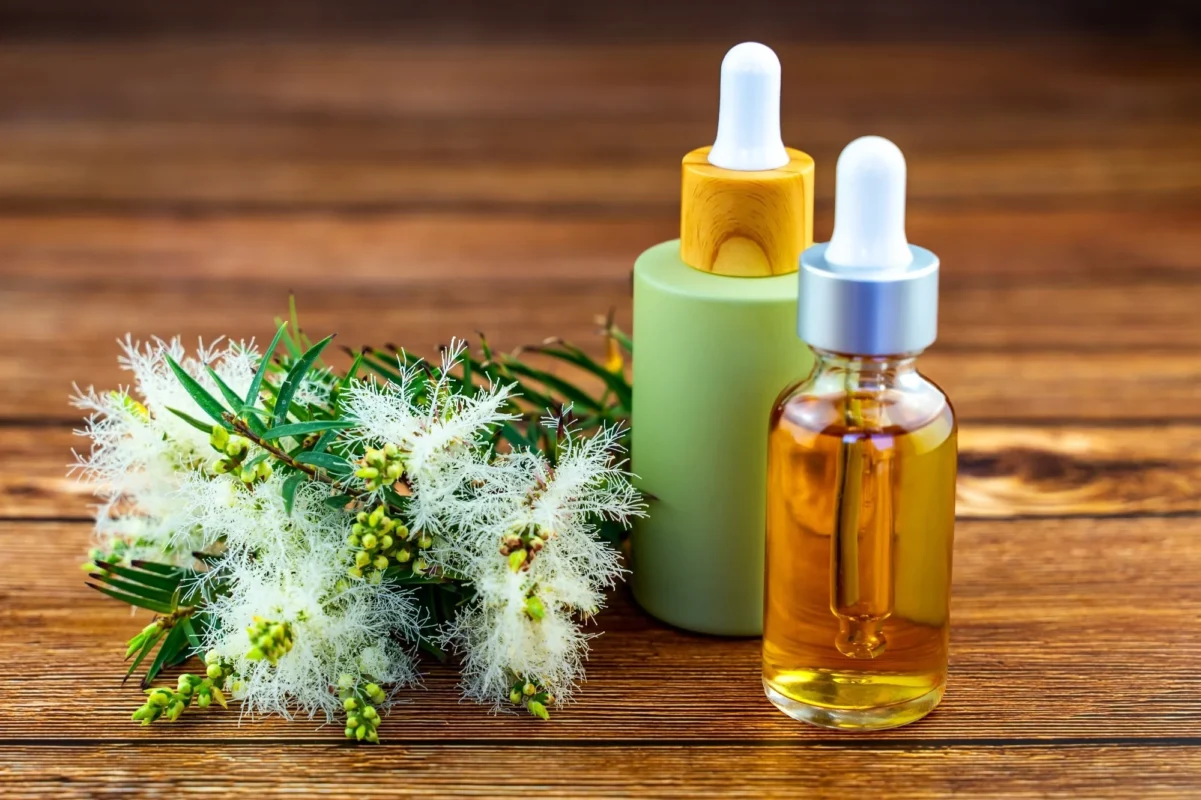In a world where beauty standards are constantly evolving and skincare trends come and go, the growing popularity of organic skincare represents a shift toward a more mindful and natural approach to skincare. Organic skincare emphasizes the use of natural ingredients that are grown without the use of pesticides, synthetic fertilizers, or genetically modified organisms (GMOs). As consumers become more aware of the ingredients in their beauty products, organic skincare is gaining momentum as an attractive, eco-friendly alternative to conventional skincare lines.
This article will explore the benefits of organic skincare, the importance of choosing organic products, and how they can contribute to healthier skin. We will also look at the common ingredients found in organic skincare products, the science behind their effectiveness, and how to incorporate organic skincare into your daily routine.

What Is Organic Skincare?
Organic skincare refers to beauty products that are made from plant-based ingredients grown without synthetic chemicals, pesticides, or fertilizers. These products are typically made with ingredients that are certified organic by recognized organizations, such as the USDA Organic certification in the United States or the COSMOS certification in Europe. This certification ensures that the ingredients used in the products meet specific organic farming standards and are free from harmful chemicals and genetically modified organisms (GMOs).
In contrast to conventional skincare products, which often contain artificial fragrances, parabens, sulfates, and other synthetic additives, organic skincare products focus on harnessing the power of natural ingredients like oils, herbs, and plant extracts to nourish and care for the skin.
Why Choose Organic Skincare?
There are several reasons why people are increasingly turning to organic skincare products, ranging from health benefits to environmental considerations. Let’s explore some of the key reasons why organic skincare is becoming a preferred choice for many.
1. Free from Harmful Chemicals
One of the primary reasons why individuals choose organic skincare products is that they are free from harmful chemicals often found in conventional skincare items. Many mainstream skincare products contain synthetic ingredients, such as parabens, phthalates, sulfates, and synthetic fragrances, which can irritate the skin, disrupt hormonal balance, or even contribute to long-term health problems.
In contrast, organic skincare products are formulated with natural ingredients that are typically gentler on the skin. For individuals with sensitive skin or those prone to allergic reactions, organic products offer a safer alternative, reducing the risk of irritation and other adverse effects.
2. Nourishing and Moisturizing
Organic skincare products often contain plant-based oils, vitamins, and antioxidants that are highly nourishing and hydrating. For example, organic oils like jojoba, argan, and rosehip are rich in essential fatty acids, vitamins, and antioxidants, which can help to hydrate the skin, restore its natural balance, and improve elasticity.
Many organic ingredients, such as aloe vera, chamomile, and calendula, also have soothing properties that can calm irritated or inflamed skin. These natural ingredients support the skin’s natural barrier, promoting healthier, more youthful-looking skin.
3. Better for the Environment
In addition to benefiting your skin, organic skincare products are also better for the environment. Organic farming practices prioritize sustainability, biodiversity, and the avoidance of harmful chemicals that can contaminate soil, water, and air. By choosing organic skincare, consumers support eco-friendly farming practices that have a smaller carbon footprint and contribute to the preservation of natural resources.
Furthermore, many organic skincare brands emphasize environmentally conscious packaging, opting for recyclable, biodegradable, or reusable materials, reducing plastic waste and contributing to a more sustainable future.
4. Cruelty-Free and Ethical
Many organic skincare brands are also cruelty-free, meaning that they do not test their products on animals. This ethical approach is particularly important for individuals who want to support companies that prioritize animal welfare and avoid harmful practices in product testing. Additionally, many organic skincare brands are committed to fair trade practices, ensuring that workers are paid fairly and treated with respect.
5. Less Risk of Allergies and Sensitivities
Because organic skincare products contain fewer synthetic chemicals, they are less likely to cause allergic reactions, skin sensitivities, or long-term health issues. Harsh chemicals in conventional skincare products can strip the skin of its natural oils and create an imbalance, leading to irritation, dryness, and even premature aging. Organic ingredients, on the other hand, tend to be more gentle and nourishing, offering a safer option for individuals with sensitive skin.

Common Ingredients in Organic Skincare Products
The beauty of organic skincare lies in the diversity of plant-based ingredients that can be harnessed for their unique properties. Here are some common ingredients found in organic skincare products and the benefits they provide.
1. Aloe Vera
Aloe vera is well-known for its soothing and hydrating properties. It is a common ingredient in organic skincare products for its ability to calm sunburns, reduce inflammation, and promote healing. Aloe vera contains vitamins, minerals, and amino acids that nourish the skin and support its natural barrier.
2. Jojoba Oil
Jojoba oil is a natural moisturizer that closely resembles the skin’s sebum, making it an ideal choice for balancing oil production. This lightweight oil is rich in vitamin E and antioxidants, which can help protect the skin from environmental damage and keep it hydrated without clogging pores.
3. Rosehip Oil
Rosehip oil is a powerhouse ingredient that is high in essential fatty acids, antioxidants, and vitamins A and C. It is commonly used to improve skin texture, fade dark spots, and reduce the appearance of fine lines and wrinkles. Rosehip oil can also promote skin regeneration, making it beneficial for healing scars and reducing the appearance of stretch marks.
4. Green Tea Extract
Green tea extract is packed with antioxidants known as polyphenols, which can protect the skin from free radicals and reduce inflammation. Its anti-aging properties help to promote youthful, radiant skin while its anti-inflammatory effects can soothe conditions such as acne or rosacea.
5. Lavender Oil
Lavender oil is a calming and soothing ingredient often used in organic skincare products. It has antibacterial and antifungal properties that help to treat acne and other skin irritations. Lavender oil also has a calming fragrance, making it a popular addition to nighttime skincare routines.

6. Tea Tree Oil
Tea tree oil is a well-known natural remedy for acne and oily skin due to its powerful antibacterial and anti-inflammatory properties. It helps to reduce the appearance of blemishes, control excess oil, and promote clear, healthy skin. Tea tree oil is often used in facial cleansers, spot treatments, and toners.
7. Chamomile Extract
Chamomile is a natural anti-inflammatory and anti-irritant that is commonly used to soothe sensitive skin. It can reduce redness, calm irritation, and promote healing. Chamomile is often found in organic skincare products for its ability to hydrate, soften, and protect the skin.
The Science Behind Organic Skincare
While organic skincare products are rooted in traditional plant-based ingredients, there is also a growing body of scientific research supporting their effectiveness. Many of the key ingredients used in organic skincare have been shown to provide significant benefits for skin health.
For example, studies have shown that aloe vera can promote wound healing, reduce the appearance of wrinkles, and improve skin hydration. Similarly, rosehip oil has been studied for its ability to reduce the appearance of scars and improve skin elasticity due to its high content of essential fatty acids and vitamin C.
Antioxidants found in organic skincare ingredients, such as vitamin E, green tea extract, and rosehip oil, are crucial for protecting the skin from oxidative stress caused by free radicals. This helps to prevent premature aging and skin damage caused by environmental factors like pollution and UV radiation.
Furthermore, the use of natural oils and plant-based ingredients has been shown to support the skin’s natural moisture barrier, leading to improved hydration and a healthier complexion. By avoiding synthetic chemicals that can disrupt the skin’s natural processes, organic skincare offers a more holistic approach to skincare that nurtures the skin from within.
How to Incorporate Organic Skincare Into Your Routine
If you’re interested in switching to organic skincare, it’s important to start by transitioning gradually to allow your skin to adjust. Here’s a simple guide to help you incorporate organic skincare into your daily routine:

1. Start with Cleansing
Begin your routine with a gentle, organic cleanser that is free from sulfates and artificial fragrances. Look for cleansers that contain natural ingredients like aloe vera, chamomile, or green tea, which will cleanse your skin while also nourishing and soothing it.
2. Use a Toner
Organic toners help to balance the skin’s pH and remove any remaining impurities. Opt for a toner that contains organic ingredients like witch hazel, rose water, or lavender, which have calming and hydrating properties.
3. Moisturize with Organic Oils
After cleansing and toning, apply a moisturizer that contains organic oils like jojoba, argan, or rosehip oil. These oils will hydrate and nourish the skin, keeping it soft and supple throughout the day. You can also choose a richer cream if you have dry or mature skin.
4. Treat Specific Skin Concerns
If you have specific skin concerns such as acne or hyperpigmentation, look for organic serums or treatments that contain targeted ingredients like tea tree oil, vitamin C, or hyaluronic acid. These ingredients can help address specific skin issues while maintaining the natural integrity of your skin.
5. Sun Protection
Even though organic skincare focuses on natural ingredients, protecting your skin from the sun remains crucial. Look for organic sunscreens that use mineral-based ingredients like zinc oxide or titanium dioxide to protect against UV rays without the use of harmful chemicals.
















